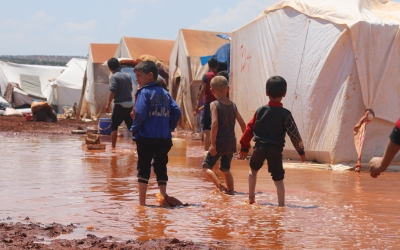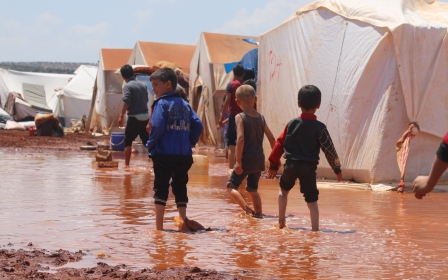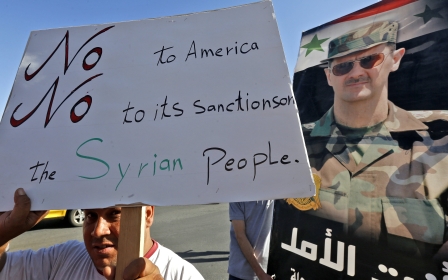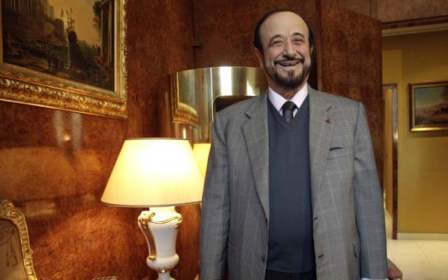French children repatriated from refugee camps in Syria
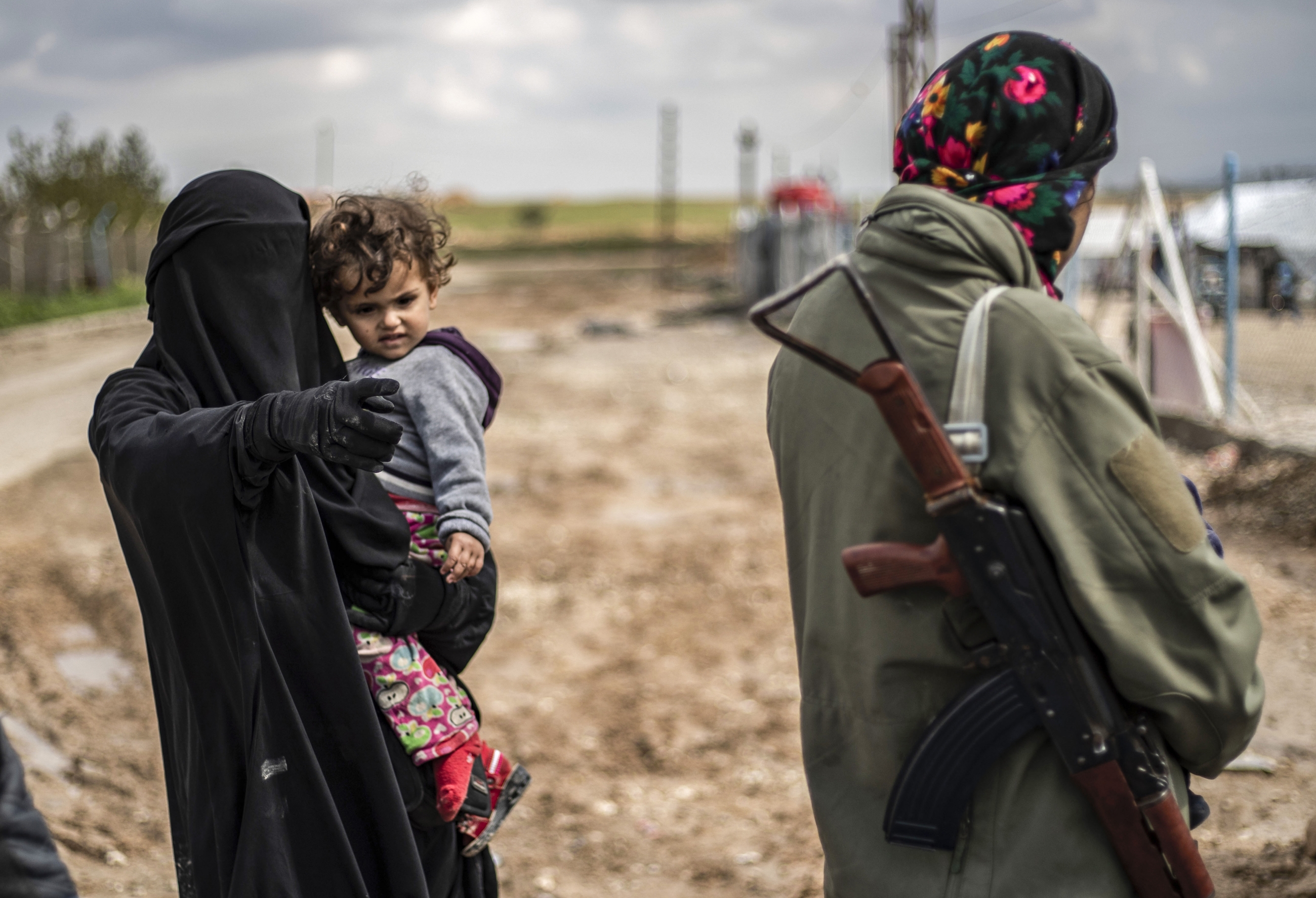
Ten French children have been repatriated from refugee camps in northeastern Syria, France's foreign ministry said on Monday.
The children, who came from families linked to the Islamic State group, were handed over to French authorities by the pro-Kurdish administration that controls much of northeastern Syria.
Writing on Twitter, Abdulkarim Omar - co-chair of the foreign relations commission of the Autonomous Administration of North and East Syria - said the children were "orphaned and humanitarian cases" and had been transferred to a French delegation in the city of Qamishli.
The French foreign ministry said in a statement the children were "now subject to specific medical follow-up care and are in the care of social services".
According to a report by the International Crisis Group (ICG), there are currently around 13,500 foreign women and their children spread across three camps in northeastern Syria.
New MEE newsletter: Jerusalem Dispatch
Sign up to get the latest insights and analysis on Israel-Palestine, alongside Turkey Unpacked and other MEE newsletters
Since the declared defeat of IS in March 2019, France has repatriated 28 children from Syria.
The country has stated that the decision to bring back children from Syria would be decided on a case-by-case basis.
However, human rights groups have called for more action to be taken, particularly since the beginning of the coronavirus pandemic.
The refugee camps, which are largely makeshift, cramped and under-resourced, could be severely hit by an outbreak of the Covid-19 virus.
Middle East Eye delivers independent and unrivalled coverage and analysis of the Middle East, North Africa and beyond. To learn more about republishing this content and the associated fees, please fill out this form. More about MEE can be found here.


